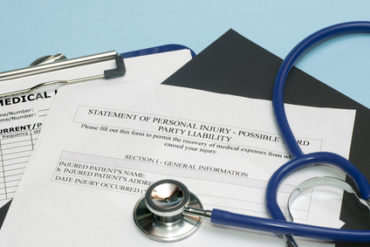
What Do I Do First?
Immediately after dealing with a personal injury, things can get pretty complicated. What are the first steps you should take in order to have the best chances of everything coming up in your favor? Your number one priority should be your own health. If you have been injured, take care of yourself! However, if you already have, there are a few steps you can take in your best interest. First and foremost, gather evidence! Evidence is used in court to prove your case, leaving the responsibility on the defendant rather than yourself. This can strengthen your case immensely. Most commonly, photographs are incredibly useful in order to point the blame elsewhere, whether it was a vehicle accident or other form of personal injury.
Be sure to keep detailed records. From the moment of the accident onward, write everything that happens to you down. Be specific. If you receive texts or calls from the defendant, be sure to record when they occurred and what was discussed. Texts should not be deleted as they can also be used as evidence. If you are planning to file a claim against the person responsible for your injury, be sure to tell them as much. Records also include any bills that you have, such as medical bills or estimates from a mechanic in the case of a motor vehicle accident. Also, be sure to get (and keep) information from anyone who happened to witness the accident. Also, be sure to contact these people via the contact information provided in order to verify what they gave you in case an official requires a testimonial.
What to Expect During the Lawsuit
If you decide to file a claim, you will need to hire a lawyer, specifically a personal injury attorney. This kind of attorney specializes in cases like yours, which means they have the best chance of getting you the results you are looking for. You should file a claim (depending on where you are) usually within either 30 days or up to one year. Your attorney will know what your time limit is and walk you through the process. Collecting compensation can be a tricky and time consuming process, so it is generally advised that you not wait too long despite what time you may have.
The first thing you will deal with is a consultation with your new lawyer. You will explain your accident in detail and he/she will ask any clarifying questions he/she may have in order to better understand what you are working with. Each case is unique, but there may be a few things your lawyer asks you to do, such as signing a document giving him/her permission to access your medical records in order to help your case. You will also have to provide all of your insurance information, since all insurances are different and it will affect how he/she approaches your case.
It is important to inform your attorney of whom you have spoken to (such as insurance adjustors or anyone from the defendant’s side of the claim) and what was discussed. For the most part, they will take care of things. You simply supply any information they may need. Your injury status will also be important, so make sure you are up to date on everything before your consultation and have the most recent update about your condition. If your lawyer decides that your case is worth representing, you will fill out a contract with him/her. From there, it’s in your lawyer’s hands to get you the settlement you deserve. They will, however, keep you up to date and informed on all aspects of your case and answer any further questions you may have.

